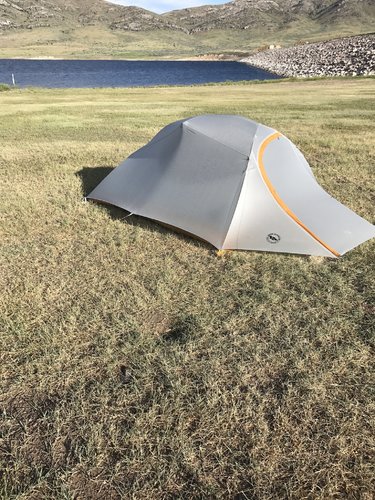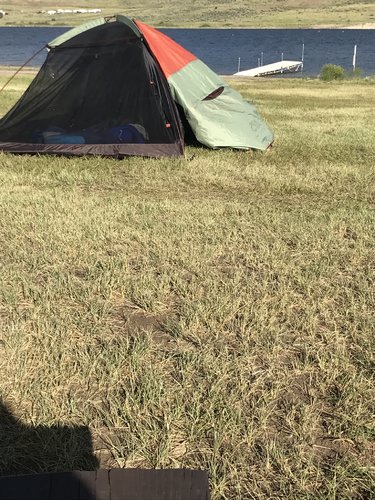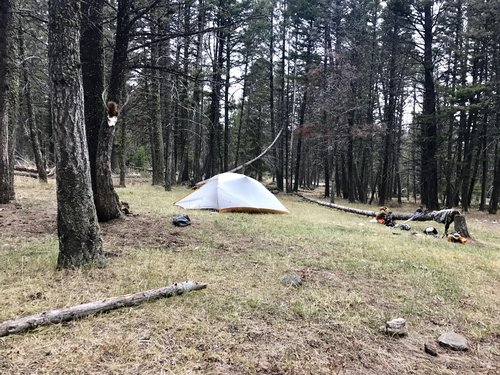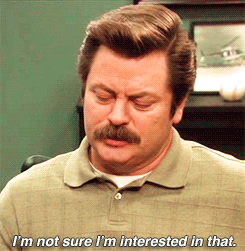Irrelevant
Well-known member
Dude those trees are about as wind sculpted as the come!
Follow along with the video below to see how to install our site as a web app on your home screen.
Note: This feature may not be available in some browsers.
Dude those trees are about as wind sculpted as the come!
I'm headed to Idaho this October for an OTC mule deer hunt. A group of three of us will be flying in from the east for a 7 day trip. We will be in central ID in remote but not super remote locations. We have a tipi tent with a titanium wood stove and plan to combination base camp and spike camp. I'm trying to solicit lessons learned from other hunt talk users on a trip like this specific to deer and hunting what I call high country (8,000+ feet). These can be anything from fly in logistics, to hunting tactics, to out of shape hunting partners to gear selection to hunting schedule to game preparation or whatever you'd be inclined to share with us. If there are some that attempted a trip like this and had a major disconnect between expectation and reality on certain issues I'd like to hear about it if you're willing to save us some grief. I post this in a deer specific thread to weed out advice on quartering and packing out elk. Thanks in advance for the help and feel free to PM me if you don't feel like posting publicly.
I was camped at Clark Canyon Reservoir south of Dillon with a friend and told him he might want to make sure his tent was guyed out, because it gets windy. He didn’t listen.Wasn’t staked out, it got windy.
I don’t have the gram but it looked sendy on my snap.
View attachment 145517


I’m a little more conservative with where I pitch my tent when I’m actually hunting, but have to say your campsite looks more dope.Yeah it was more a cautionary tale...
View attachment 145522

Books can written from lessons learned on "remote" hunts.I'm headed to Idaho this October for an OTC mule deer hunt. A group of three of us will be flying in from the east for a 7 day trip. We will be in central ID in remote but not super remote locations. We have a tipi tent with a titanium wood stove and plan to combination base camp and spike camp. I'm trying to solicit lessons learned from other hunt talk users on a trip like this specific to deer and hunting what I call high country (8,000+ feet). These can be anything from fly in logistics, to hunting tactics, to out of shape hunting partners to gear selection to hunting schedule to game preparation or whatever you'd be inclined to share with us. If there are some that attempted a trip like this and had a major disconnect between expectation and reality on certain issues I'd like to hear about it if you're willing to save us some grief. I post this in a deer specific thread to weed out advice on quartering and packing out elk. Thanks in advance for the help and feel free to PM me if you don't feel like posting publicly.
Yes good call I'm definitely lacking here on a lower elevation backup plan. I'll look over onX as part of preparation for that. Thanks for the advice.Had the same plan as you back in 2017...planned to backpack for 7 days with 2 other people into the Frank Church for deer and elk. Camped at the trailhead the night before and it snowed 1.5 feet of snow overnight. We tried to day hunt the area but all the game tracks were leading in a straight line out of the country.
Lesson learned: Have a plan B in a completely different area that is "weather proof" or at least have an idea of low-elevation areas in case you are snowed out in the high country
Haha I appreciate the pragmatism of this post. Thanks for the advice.Have every expectation th
Books can written from lessons learned on "remote" hunts.
1. Plan for the worst
2. Expect the worst
3. Pray for the best
4. Never, EVER, put yourself in position to be lost or hurt. Help may not be a truck ride away.
5. Pay attention to the little things that can ruin your hunt: chopping wood, opening a can, ANYTHING with a knife.
6. Even if you only have a few months, do whatever you can to get in shape.
7. Most important of all, ENJOY every minute.
The list could go on for pages. GOOD LUCK!!!!!
I'm headed to Idaho this October for an OTC mule deer hunt. A group of three of us will be flying in from the east for a 7 day trip. We will be in central ID in remote but not super remote locations. We have a tipi tent with a titanium wood stove and plan to combination base camp and spike camp. I'm trying to solicit lessons learned from other hunt talk users on a trip like this specific to deer and hunting what I call high country (8,000+ feet). These can be anything from fly in logistics, to hunting tactics, to out of shape hunting partners to gear selection to hunting schedule to game preparation or whatever you'd be inclined to share with us. If there are some that attempted a trip like this and had a major disconnect between expectation and reality on certain issues I'd like to hear about it if you're willing to save us some grief. I post this in a deer specific thread to weed out advice on quartering and packing out elk. Thanks in advance for the help and feel free to PM me if you don't feel like posting publicly.
I'm headed to Idaho this October for an OTC mule deer hunt. A group of three of us will be flying in from the east for a 7 day trip. We will be in central ID in remote but not super remote locations. We have a tipi tent with a titanium wood stove and plan to combination base camp and spike camp. I'm trying to solicit lessons learned from other hunt talk users on a trip like this specific to deer and hunting what I call high country (8,000+ feet). These can be anything from fly in logistics, to hunting tactics, to out of shape hunting partners to gear selection to hunting schedule to game preparation or whatever you'd be inclined to share with us. If there are some that attempted a trip like this and had a major disconnect between expectation and reality on certain issues I'd like to hear about it if you're willing to save us some grief. I post this in a deer specific thread to weed out advice on quartering and packing out elk. Thanks in advance for the help and feel free to PM me if you don't feel like posting publicly.
I would add that anything with a blade is orders of magnitude more dangerous when you are working in the dark, and exhausted from a long day's hunt. I really try not to handle anything with a blade at the end of the day if I can help it. All my suppers are zip-top baggies. Burning myself with boiling water is probably the most risk I take there.Have every expectation th
Books can written from lessons learned on "remote" hunts.
1. Plan for the worst
2. Expect the worst
3. Pray for the best
4. Never, EVER, put yourself in position to be lost or hurt. Help may not be a truck ride away.
5. Pay attention to the little things that can ruin your hunt: chopping wood, opening a can, ANYTHING with a knife.
6. Even if you only have a few months, do whatever you can to get in shape.
7. Most important of all, ENJOY every minute.
The list could go on for pages. GOOD LUCK!!!!!
See if your doctor can get you some free samples of Viagra. In higher elevations it’s one of the best meds you can take. It will get oxygen in your blood stream quicker then altitude pills. My doctor shakes his head every September when I ask for some, hell even laughed when I first asked about it. But, after he did some checking he was like dang your right.

Just cant shot prone afterSee if your doctor can get you some free samples of Viagra. In higher elevations it’s one of the best meds you can take. It will get oxygen in your blood stream quicker then altitude pills. My doctor shakes his head every September when I ask for some, hell even laughed when I first asked about it. But, after he did some checking he was like dang your right.

I agree it is always a good idea to check your rifles zero. For shots less than 300 yard, your zero probably won't shift more than a couple inches and won't be a big factor. If you want to shoot at extended ranges, knowing your exact zero is critical. There are way to many guys out hunting that think they are capable of 500 yard or even 1000 yard shots just because they have a scope with a turret and a computer calculated drop. I believe many hunters with a turret on their scope aren't even capable of making a 300 yard shot under field conditions with even a 50% success rate and have absolutely no business trying to shoot at 500+ yards. Every hunter that is capable of shooting a deer at 500+ yards has extensive practice shooting under field conditions at extended ranges. It isn't something you can learn to do shooting from a bench. Being able to quickly get a solid rest in field conditions and factoring in wind, elevation, angle and bullet drop all take extensive practice to learn. Learn your limits on range and stick to it. Shooting beyond your limit is just going to waste ammo (best case scenario) or result in a wounded animal that your don't recover (worse case scenario).O just a thought. But u might want to re-zero your rifles at elevation closer to where you will be shooting. High elevation/ low humidity = less bullet drop. And being out west u are more likely to have opportunities at longer shots.
There is no need to sign your tag after harvest in Idaho like most Western States but it is a good idea for both you and your friends to read the regulations multiple times to make sure you understand them. You could also put a copy of the regulations on your phone to reference while in the field. An easy error to make in Idaho is not leaving "evidence of sex" naturally attached to boned out meat.Yes good call I hadn’t looked into that extensively. We will likely be splitting meat that’s packed out so I’ll re-read the ID regulations.
See if your doctor can get you some free samples of Viagra. In higher elevations it’s one of the best meds you can take. It will get oxygen in your blood stream quicker then altitude pills. My doctor shakes his head every September when I ask for some, hell even laughed when I first asked about it. But, after he did some checking he was like dang your right.